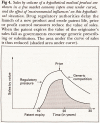Abstract
We review the pattern of prescribing medicines in the United Kingdom (UK) and compare it with that in other European markets. The prescribing of medicines in Britain has always been more conservative than in other major European markets such as France, Italy, Germany, and Spain, but the difference is becoming more marked. The conservative nature of the British prescription medicine market is indicated by three international comparisons. First, British doctors prescribe fewer items per patient per year than their counterparts in other European countries. Second, they are less likely to prescribe a product containing a new active chemical entity (NCE) than their counterparts in other countries. This resistance to the use of newer medicines has increased over the past decade. Third, British doctors rely on a progressively smaller number of active substances for a greater proportion of their prescriptions. As a result of these trends the pharmaceutical industry—at least as far as its British sales are concerned—is becoming more dependent on the sales of older products and on the occasional 'blockbuster' to finance its research. Declining uptake of new medicines, coupled with increasing pressure on doctors to prescribe cheaper generics instead of branded medicines, reduces the ability of pharmaceutical companies to fund their investment in research into as yet unconquered diseases. This trend could work against the interests of both patients and the British economy.
Full text
PDF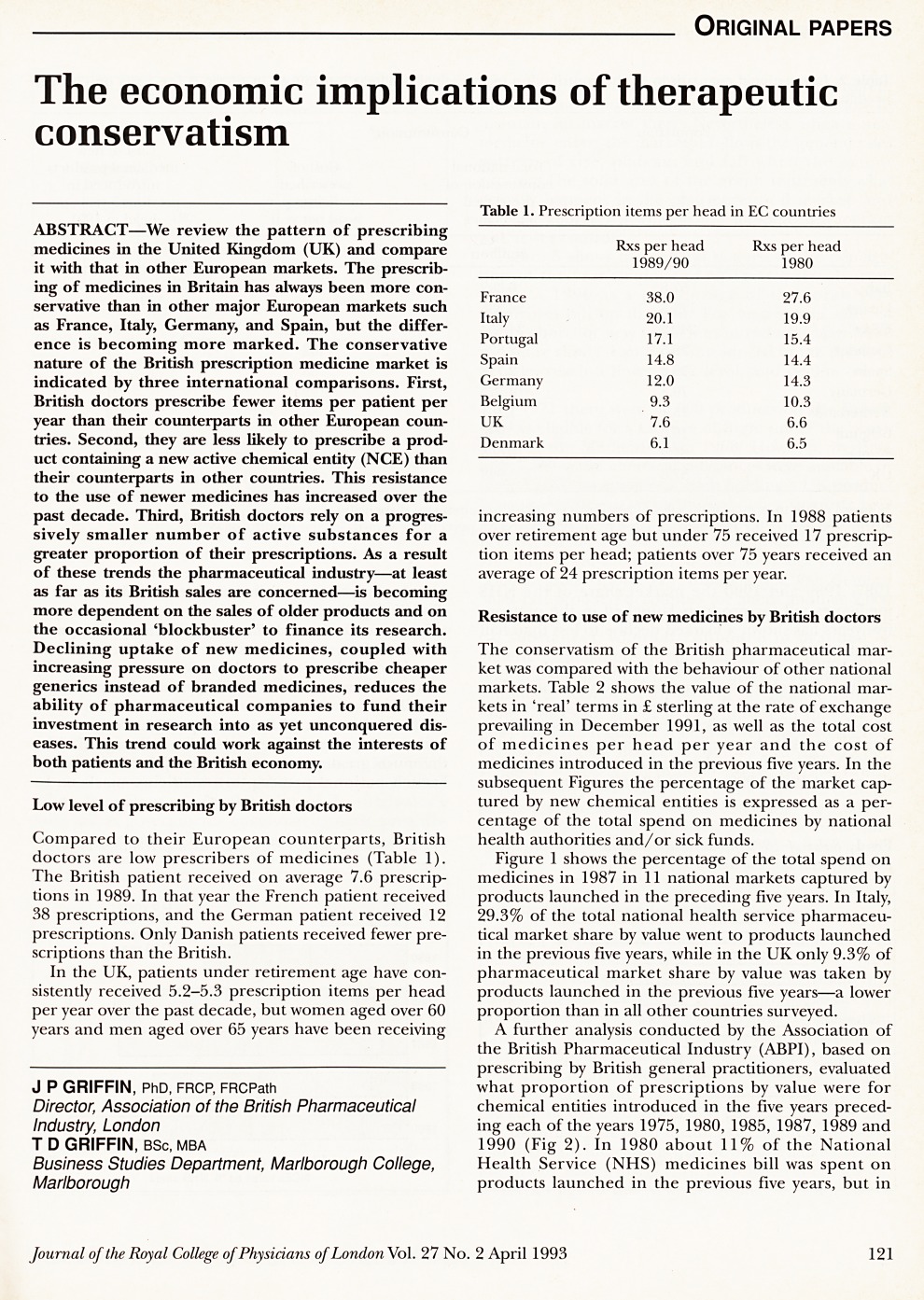
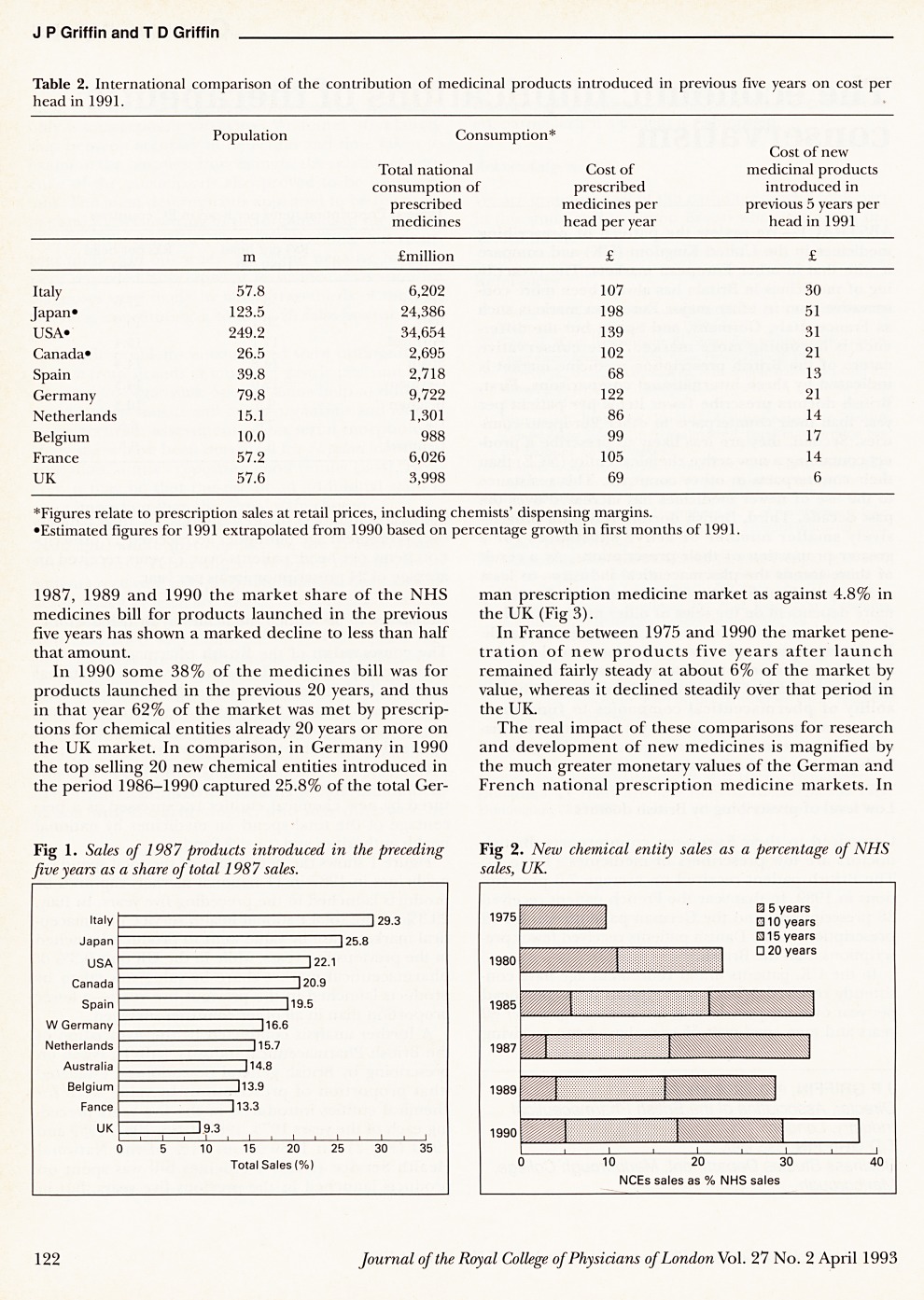
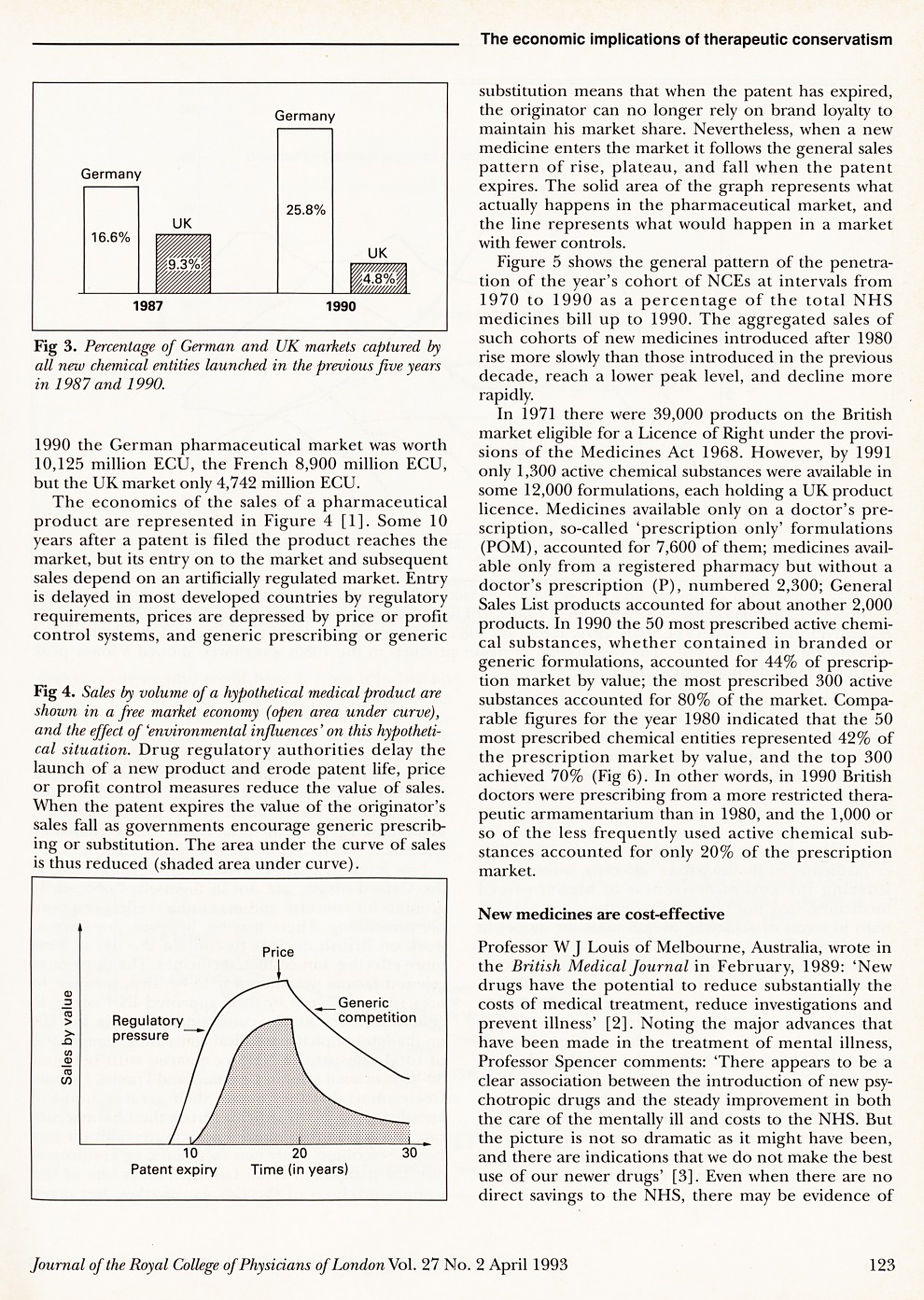
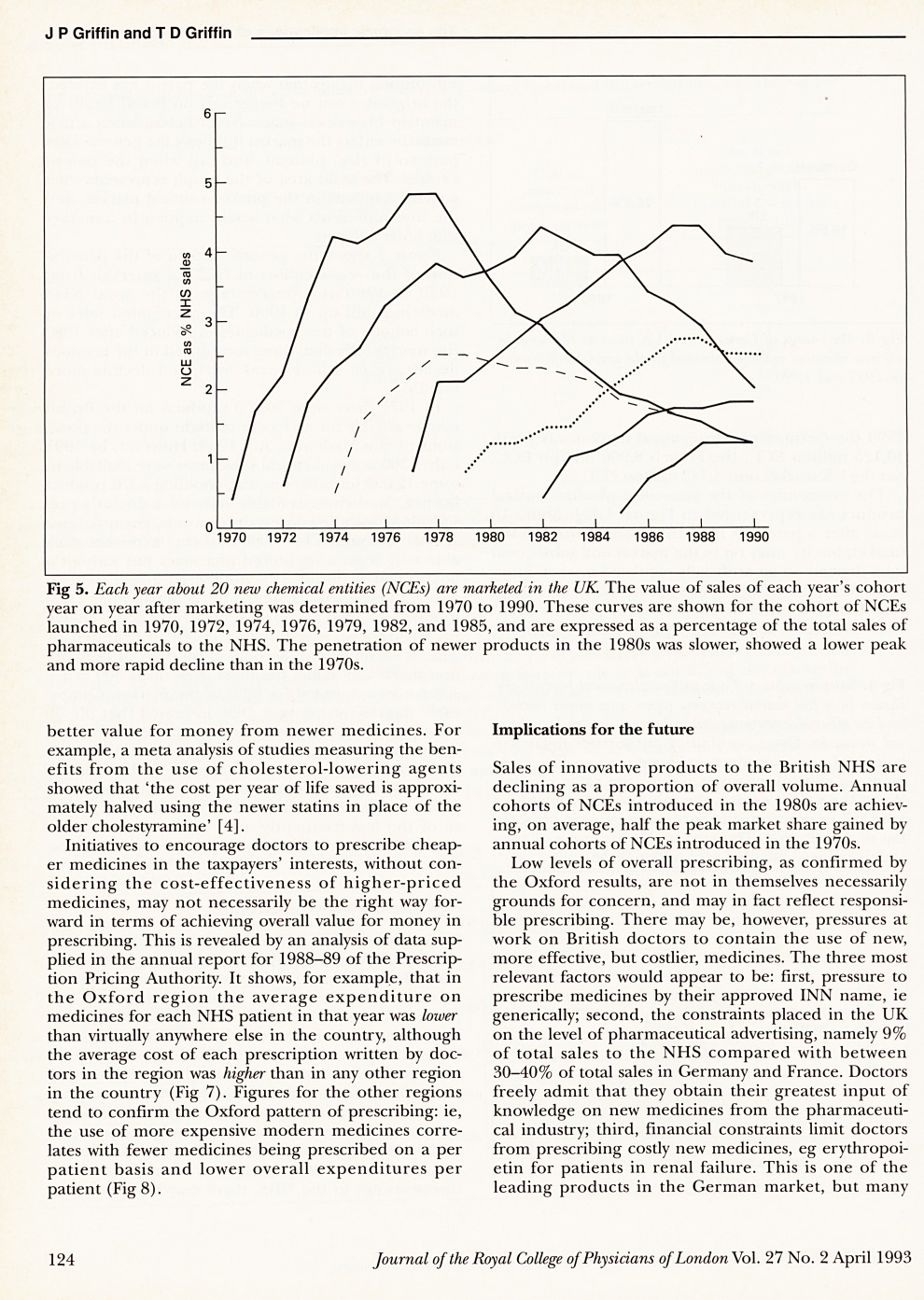
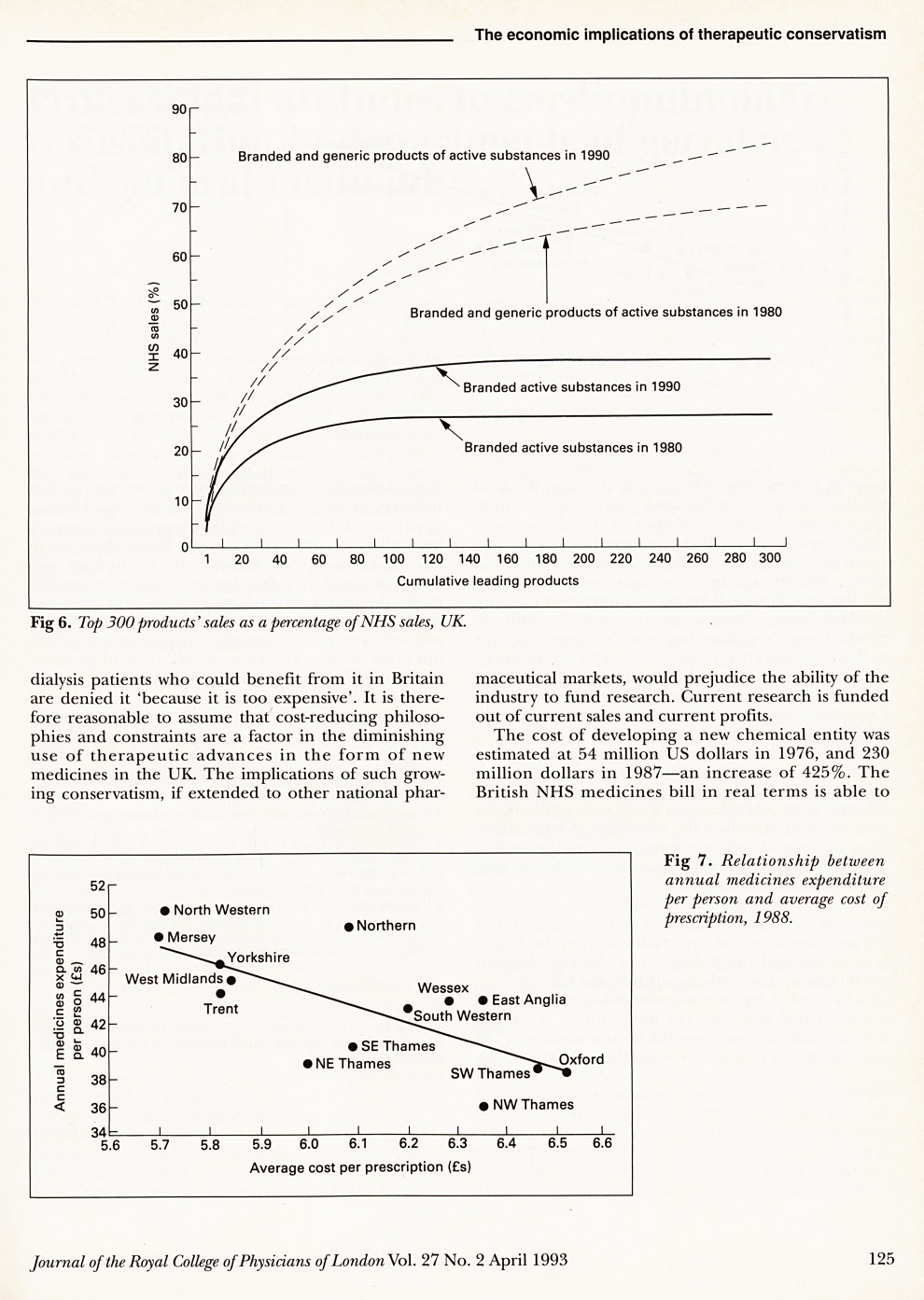
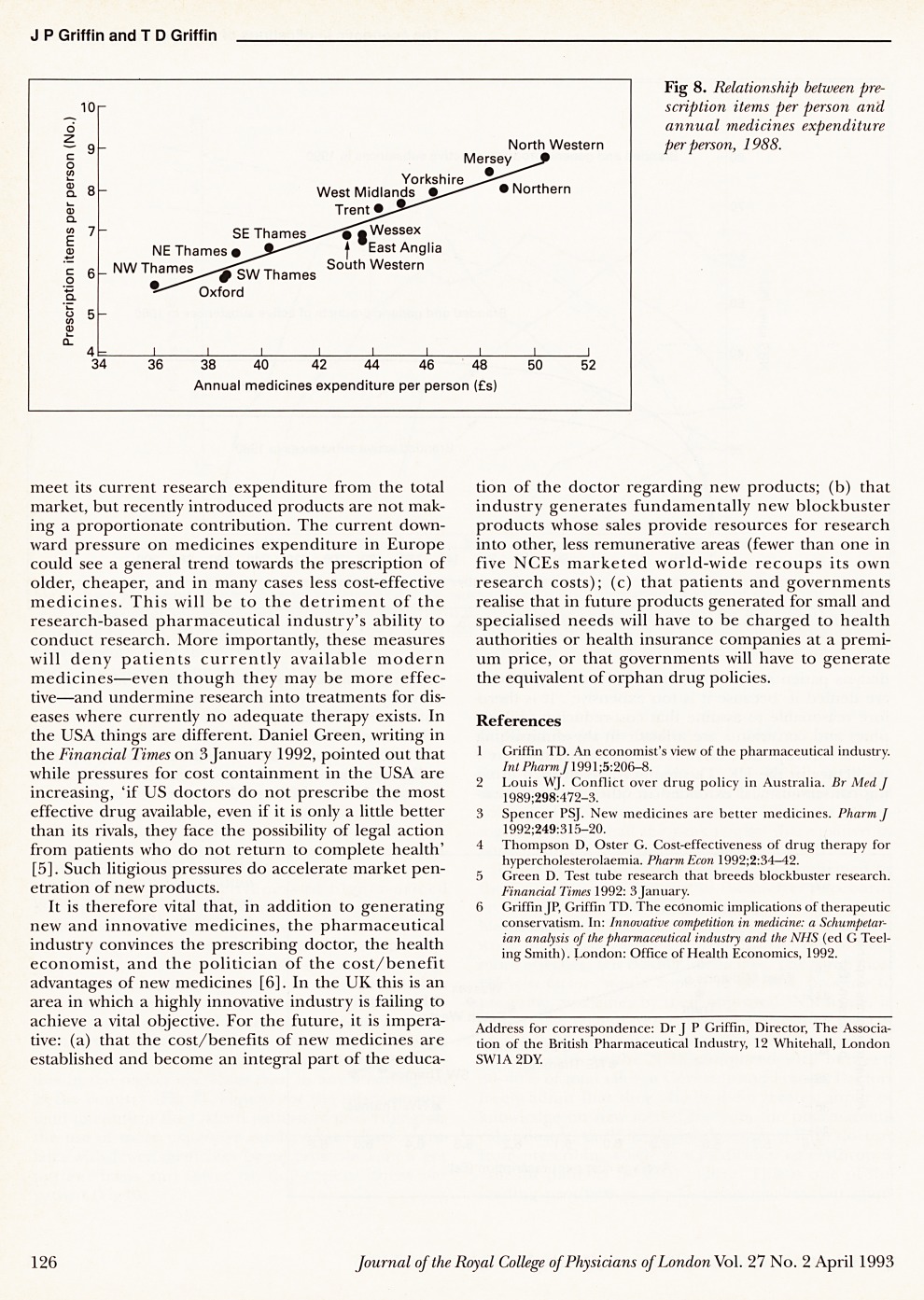
Contributor Information
J P Griffin, Director, Association of the British Pharmaceutical Industry, London.
T D Griffin, Business Studies Department, Marlborough College, Marlborough.






